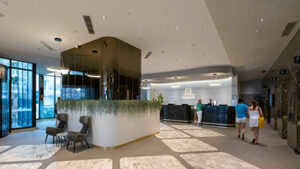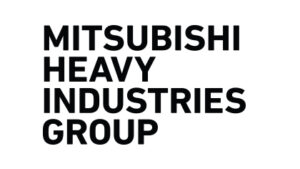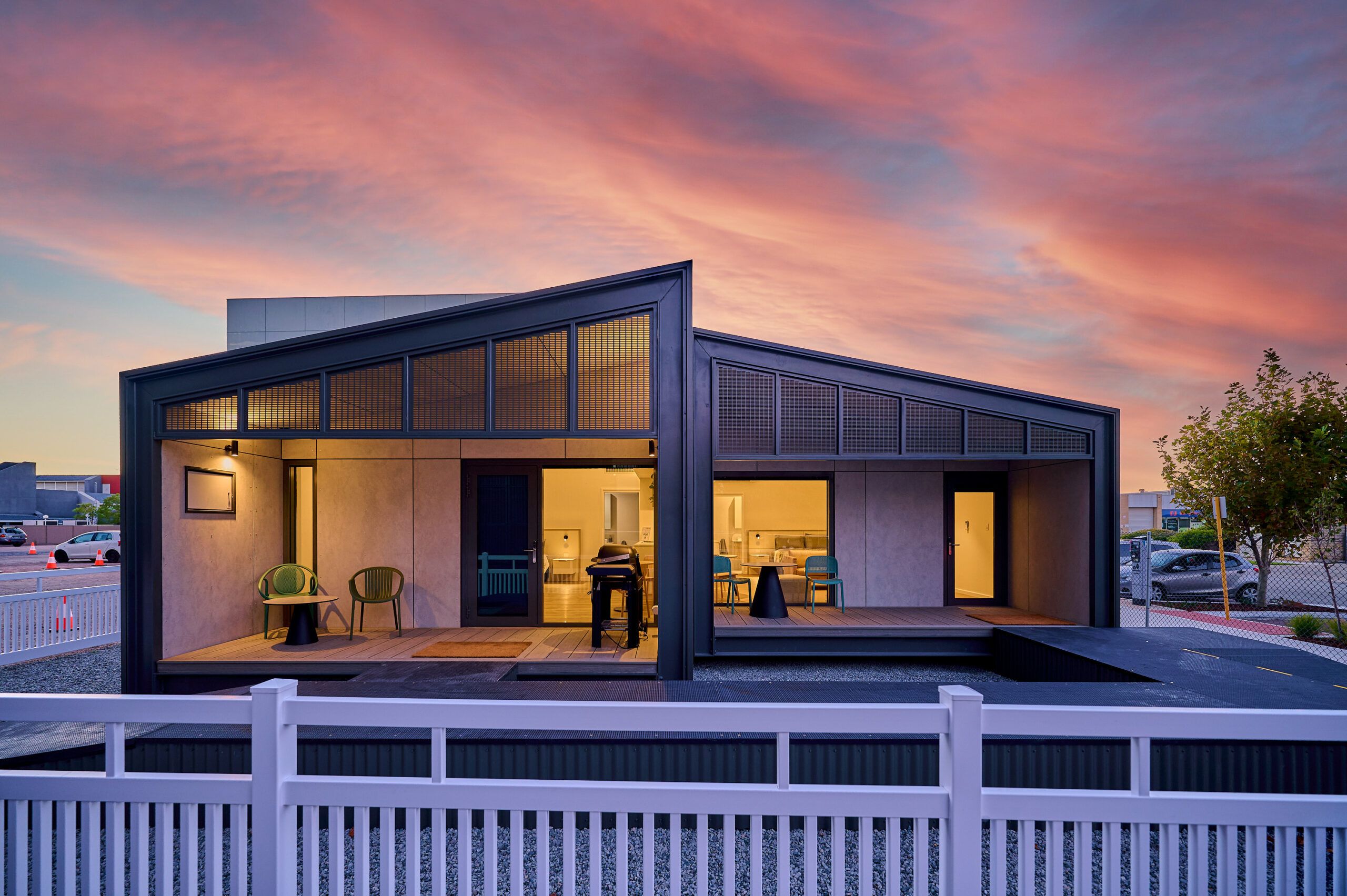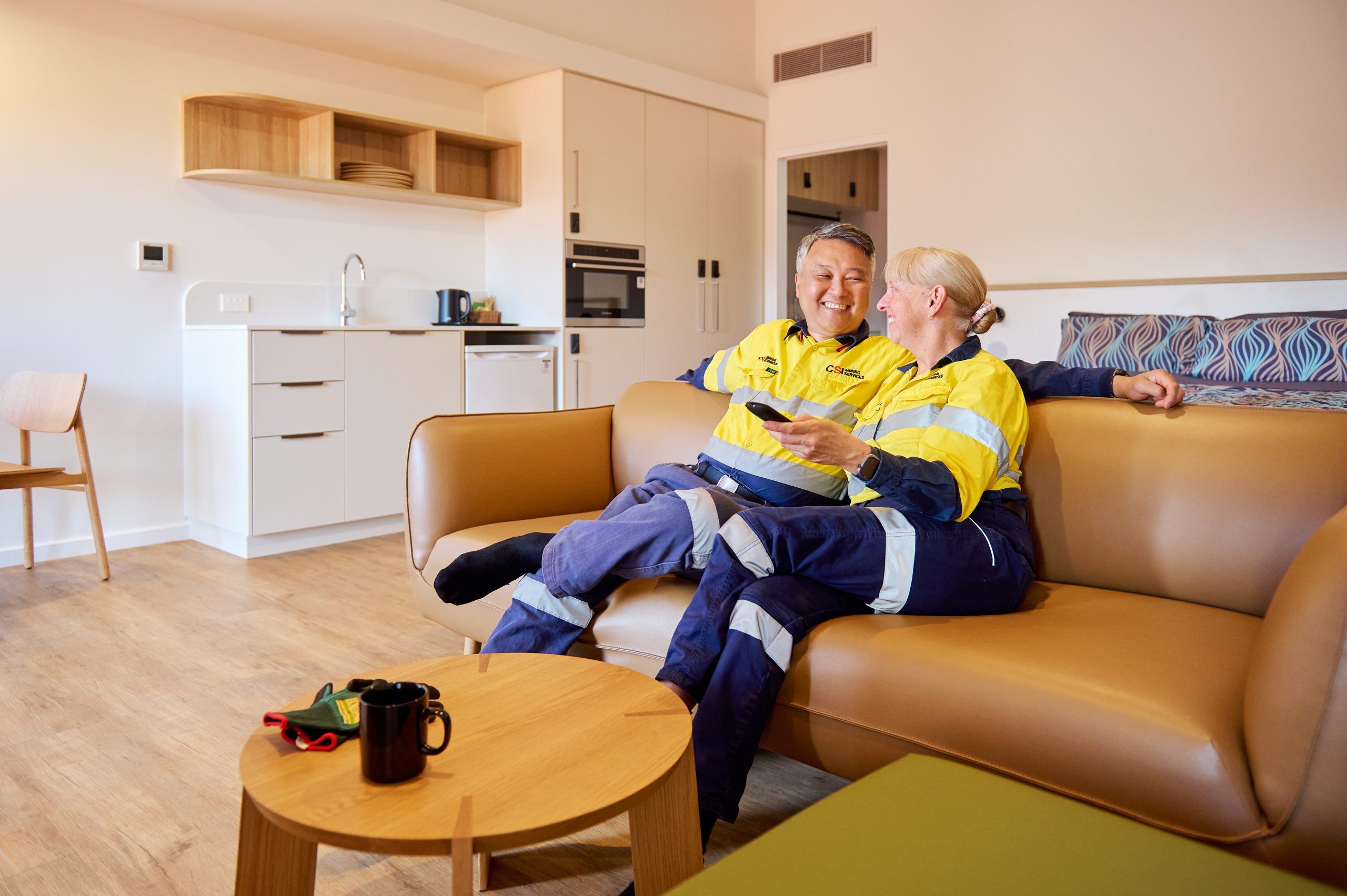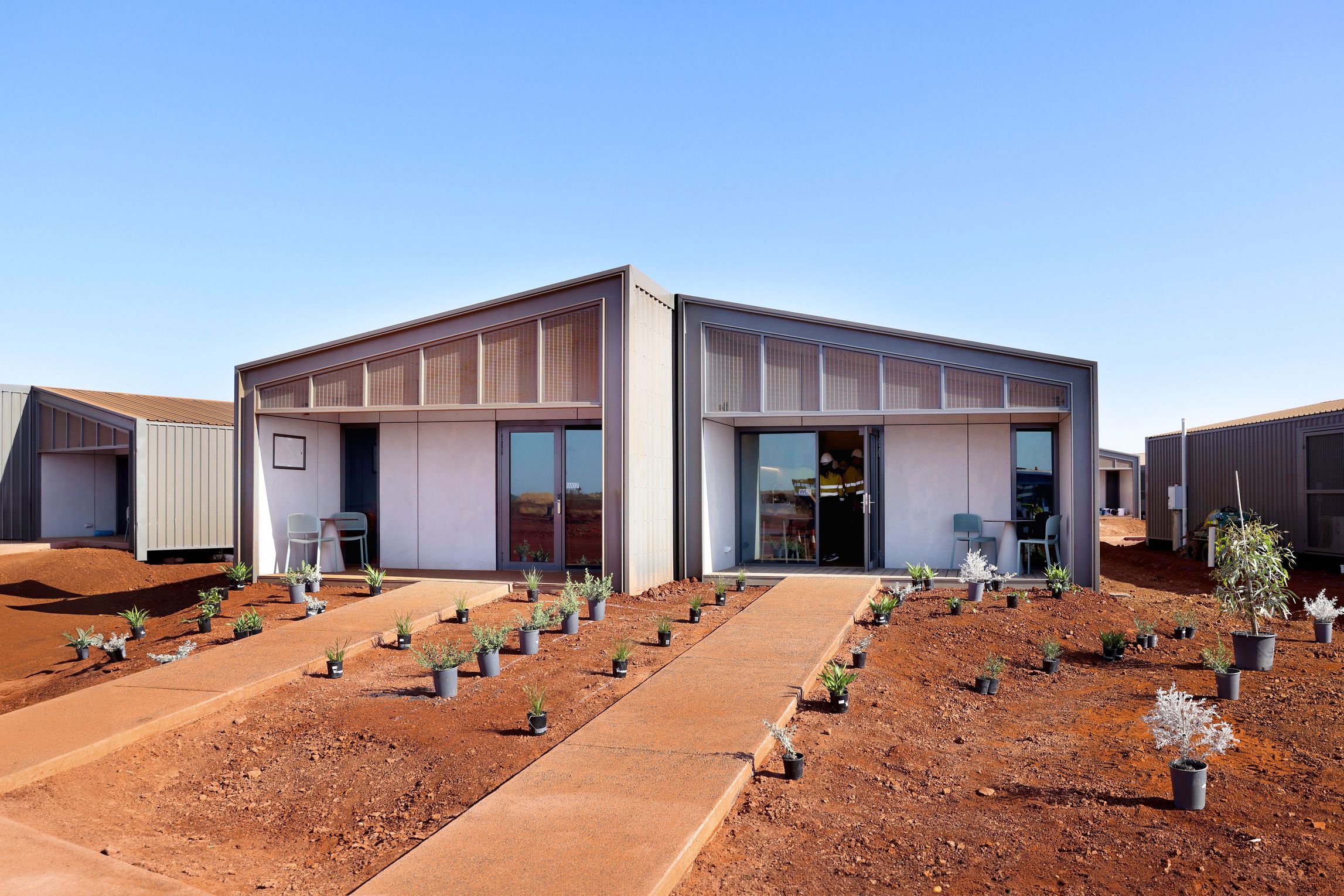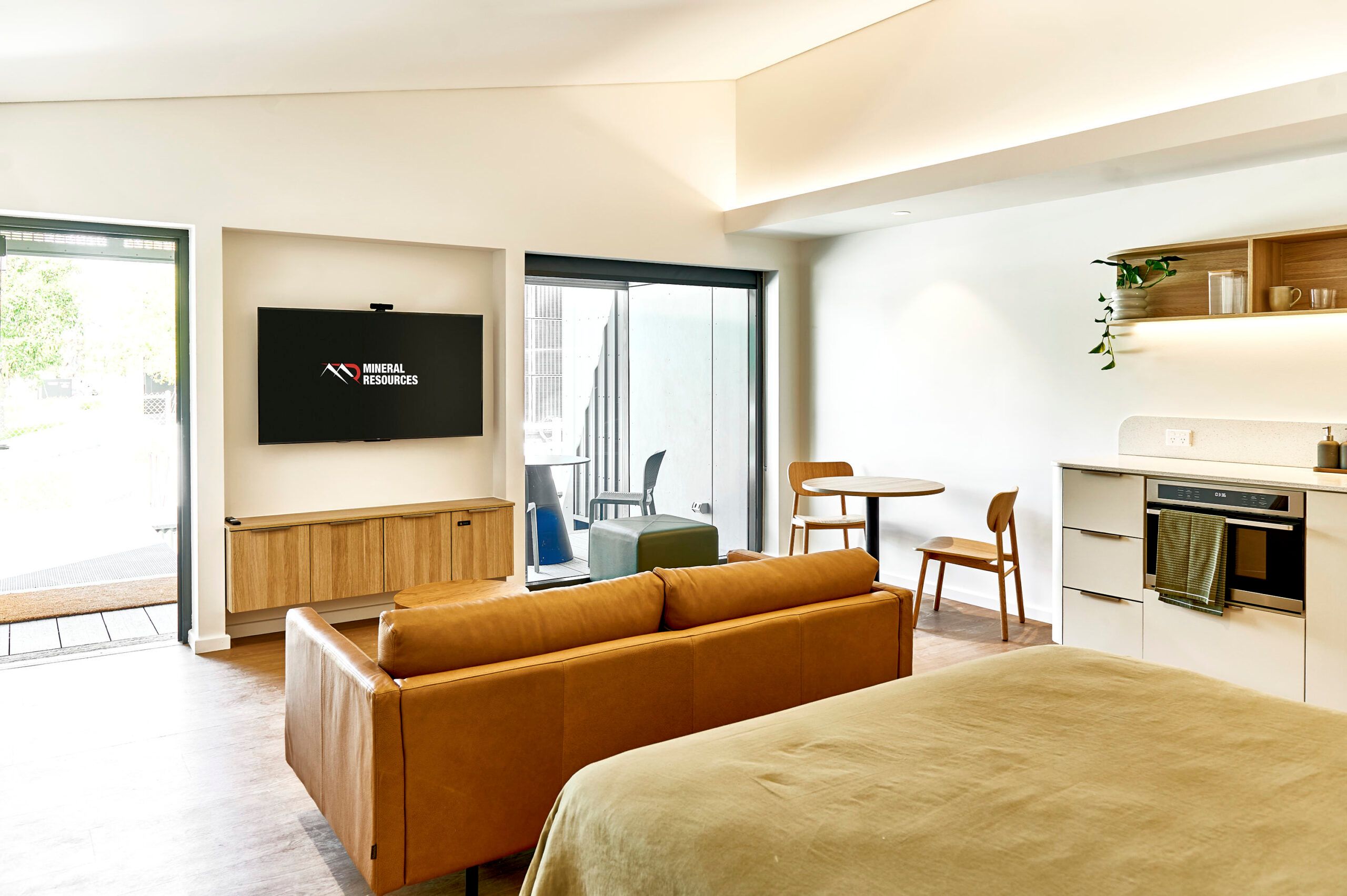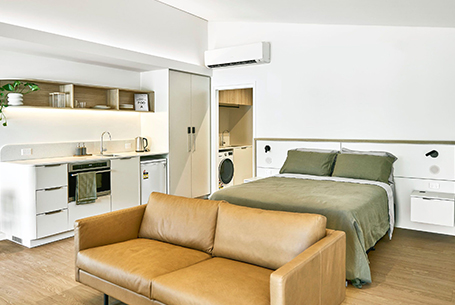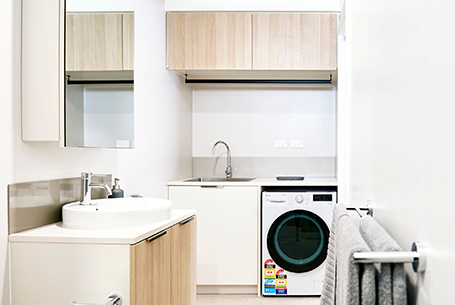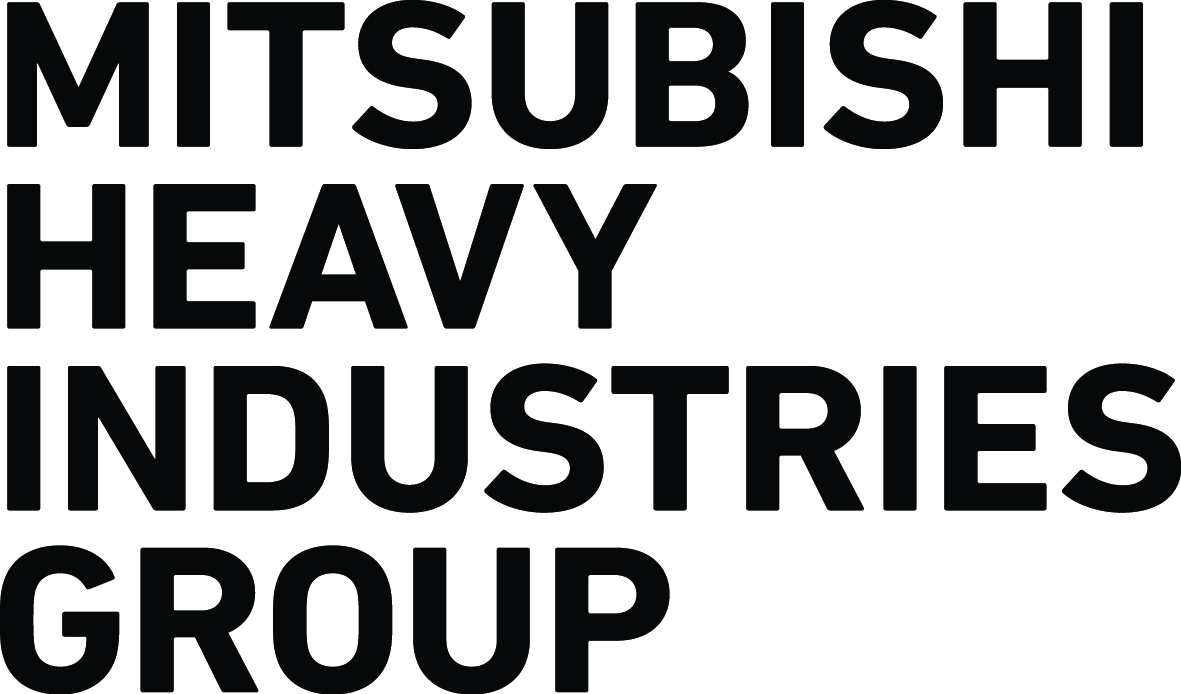Minres Onslow Project
Project Description
Mineral Resources’ (MinRes) resort-style accommodation at its Onslow Iron project is a pioneering development in the Pilbara region of Western Australia that sets a new standard for the fly-in fly-out (FIFO) lifestyle in the mining industry.
The two resorts, located at the Ken’s Bore mine site and in the town of Onslow, focus on comfort, convenience and community for workers, and feature an array of high-end amenities, including an Olympic-size swimming pool, an indoor fitness centre with gym, a cafe serving barista-made coffee and a recreation building equipped with a cinema and golf simulators.
Additional facilities include multi-purpose sports courts, a mini golf course, a fitness park with outdoor gym equipment and a wellness loop with running track. The on-site restaurants offer a la carte menus, further enhancing the experience.
This ambitious project is comprised of 750 locally-fabricated rooms across the two resorts, each offering 45 square meters of living spaces that are three times larger than traditional FIFO accommodation. These new buildings – known as pods – are part of a larger effort by MinRes to create a diverse workforce that encourages partners to stay together on-site, thereby improving mental health and overall well-being. Each pod is fitted with a queen-size bed, separate ensuite, kitchenette, lounge and laundry with washer and dryer. The pods also feature a large screen television with a video call function to help workers stay connected with family and friends, and every room includes a balcony with an electric barbecue.
Project Requirements & Challenges
The project called for a high performance and reliable climate control solution for all 750 of the modern, resort-style worker accommodation pods. The solution would need to be especially robust given the Pilbara region’s incredibly harsh climate which can often see ambient temperature reach scorching highs of over 48oC during the day and then drop to 10oC overnight.
Given these highly variable temperatures and the fact many workers will be working on rotating shifts (often meaning odd hours of operation), the outdoor units would need to boast a wide operating range and be able to withstand the tough, dusty conditions of the region to ensure the utmost comfort to occupants 24hrs a day – something MinRes management highlighted was important when creating a comfortable, home-away-from-home atmosphere for their employees.
While each pod was designed with insulation in mind, the large internal space of the pods and their large windows offered a unique challenge with regards to heat loading so was a consideration by engineers.
MHIAA’s Solution
While initial discussions with contractors focused around wall mounted split systems as a possible solution, the FDU series of MHIAA ducted systems were eventually selected for every one of the pods.
Due to their slimline design, the FDU series of ducted systems offered a quiet and compact solution that could be installed easily. With a built-in drain pump as standard indoor units were able to be installed within the wall space and were fitted with modern, discreet grilles to ensure a clean and modern finish for all spaces.
All indoor units were connected to FDCA outdoor units in a 1:1 connection. The FDCA outdoor units are robust, deliver high performance and offer a wide operating temperature range ensuring their reliability all year round, even in the region’s high temperatures.
Each ducted system was controlled by a wall mounted RC-EXZ3A controller, ensuring precise and user-friendly climate management. The ducted systems were initially installed in the pods at a facility in Perth before being transported to the northern part of Western Australia for final installation, allowing majority of the work be completed efficiency.
By working closely with Metalflex Jandakot, ACTROL O’Connor, builders and several contractors, MHIAA was able to deliver a reliable climate solution for this unique and first-of-its kind project located in one of the harshest climates in the world.
More about the Minres Onslow Project can be found here.














